There was one thing about Father Vincent Machozi that worried his religious superiors in the Brighton, Mass., house of the Augustinians of the Assumption. Machozi, a contemplative priest from the Democratic Republic of the Congo (DRC), operated a website, Beni Lubero Online, where he posted grisly iPhone photos of victims of violence in the DRC province of North Kivu, as well as reports that often identified the killers as military or government agents. Machozi (STH’15), who was working toward a PhD at BU’s School of Theology, hoped that the photos of dead and dismembered bodies would galvanize site visitors to help end the violence. His superiors, on the other hand, feared that they would invite the revenge of the warlords and militias who controlled the lawless province, and who could easily direct their retaliation at some of the 150 Assumptionist priests working in schools and orphanages in eastern Congo. They asked that Machozi never link the site in any way to the Assumptionist order.
“Our superiors were very concerned,” says Father Claude Grenache, superior of the Assumptionist Center in Brighton, the three-story brick building where Machozi lived for almost 10 years. “He was always careful to publish the website under his own personal name, because if he did that in the name of the congregation, everybody would be in danger. Even in this country, we could have run into problems.”
While Machozi honored his superiors’ concerns, he never let their trepidation influence his personal choices. In June 2012, he put his studies aside and returned to his war-ravaged homeland, where in many villages three-quarters of the women had been raped by soldiers, and where women, boys, and men were forced by militia to dig for the highly prized ore coltan, which is essential for the manufacture of cell phones.
He had the feeling we all have when we know we’re not doing the best thing. Only he actually listened to that. That’s what made him special.
Ayda Zugay (CGS’07, CAS’10)
The move surprised few of the people at STH and BU’s African Studies Center, who knew Machozi well. Even those who had heard about the several death threats he had received over the years understood why he had to do it. No measure of danger could match the power of Machozi’s calling.
“He had the feeling we all have when we know we’re not doing the best thing,” says Ayda Zugay (CGS’07, CAS’10), who met him at the African Studies Center. “Only he actually listened to that. That’s what made him special.”
Neither were friends surprised in March of this year, when they learned that three days after Machozi posted an article on Beni Lubero alleging that the Congolese and Rwandan governments were complicit in the violence against civilians in North Kivu, he was shot to death by soldiers.
A Son of Tears
Vincent Machozi was born 51 years ago in the North Kivu village of Vitungwe-Isale, one of 13 children in a family where several siblings had died in childbirth. The shadow of their deaths fell on his name, Machozi, which in the language of the Nande people (also known as Yira) means “son of tears.” When he was 15, his father died. Two years later, he began religious studies with the Assumptionists, a French order that had flourished since it arrived in the region in 1929, when the country was called the Belgian Congo. As the priests often did with promising students, they sent Machozi abroad for education. He went to the University of Lille in France, then returned to the DRC to work with youth in the capital, Kinshasa. In 2003, he moved again, this time to Boston, where he earned a master’s degree in 2006 at Boston College.
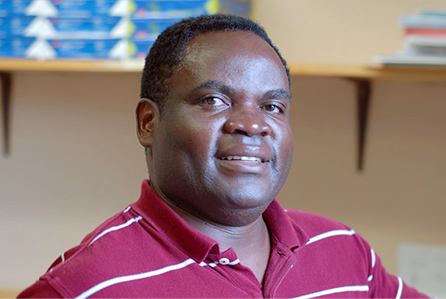
When Machozi told his friend Ayda Zugay about atrocities in his homeland, she was sure he must be exaggerating. She later learned he wasn’t. Photo courtesy of Augustinians of the Assumption
“What he wanted to study was something to do with ethnicity,” recalls Grenache. “He was interested in African history and African psychology.”
In 2006, Machozi enrolled in a PhD program in social ethics at STH. Dana Robert, Truman Collins Professor of World Christianity and History of Mission and one of Machozi’s advisors, says the priest was attracted by BU’s reputation for educating champions of social justice like Martin Luther King, Jr. (GRS’55, Hon.’59). Robert suggested that he look for work at the African Studies Center, which often hires graduate students who came to BU from Africa. “Of course he made friends there,” says Robert. “He ended up finding a wonderful home away from home.”
One of those friends was Zugay, a young woman who happened to have an inherent understanding of his plight. She and her sister had fled Serbian violence in Yugoslavia in 1999 and arrived in America with two bags of clothing and $500.
His reporters would go into internet cafes to send information. They would go in pairs, and one person would be the lookout.
Barbara Brown
“I remember Machozi told me that people in the DRC were tired of running,” Zugay says. “I knew what it feels like to be tired of running. I could see when he spoke about it how it affected him. I knew I was talking to a really good person.”
When Machozi asked for help with his website, Zugay signed on. She recalls that when he first told her about the violence in eastern Congo, she thought he must be exaggerating. “I couldn’t believe something like this could be happening and nobody would do anything about it,” she says.
Zugay says she knows better now. North Kivu, which borders Rwanda and Uganda, has been a war zone for more than 20 years, seized largely by opportunistic militias and warlords in the wake of the Rwandan genocide of 1994, which killed 800,000 people in 100 days and sent 2 million refugees across the border. Since then, more than 5.4 million people in the region have died from violence, disease, and starvation. The Council on Foreign Relations reports that North Kivu communities are routinely terrorized by as many as 70 armed groups.
Machozi’s supervisor, Barbara Brown, director of the African Studies Center’s outreach program, says he once told her how his reporters in the DRC worked. “They would go to internet cafes to send him information,” Brown recalls. “I said, ‘That must be dangerous,’ and he said, ‘Yes, they go in pairs, and one person is the lookout, and if someone they don’t know comes in, they immediately switch to another site.’”
Close
Professors Timothy Longman and Julie Klinger discuss the mining of coltan, an obscure mineral found in eastern Congo and critical for the production of all modern mobile electronics. Video by Devin Hahn
Many valuable minerals are mined in eastern Congo, but coltan is the big prize. Short for columbite-tantalite, it is the source of tantalum, which is widely used in cell phones and computers. The United States, which closed its last commercial coltan mine in 1959, is the world’s leading consumer of products made with tantalum.
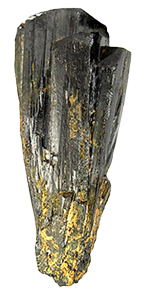
Coltan is the source of tantalum, which is widely used in cell phones and computers. In eastern Congo, “men, women, and children are forced to work, often at gunpoint,” in coltan mines.
It’s no secret that coltan mining in eastern Congo empowers the militias and perpetuates human rights violations. A 2002 report by a United Nations Panel of Experts found that as much as 70 percent of the coltan exported from the region was mined under the surveillance of Rwandan army forces and as much as 95 percent enriched Rwandan military and political elites.
“There are absolutely no scruples about who is put to work in the mines,” says Julie Klinger, a Pardee School of Global Studies and a College of Arts & Sciences assistant professor of international relations, whose book, Rare Earth Frontiers, will be published next year by Cornell University Press. “Men, women, and children are forced to work, often at gunpoint, and where that is not the case, people who are mining legally occasionally find that their sites are taken over by warlords who extort part of what they produce.”
Among the several efforts to discourage companies from using coltan mined in the Democratic Republic of the Congo (DRC), the most notable is a section of the 2010 Dodd-Frank Wall Street Reform and Consumer Protection Act that requires companies that source tantalum, tin, tungsten, and gold to perform due diligence to determine if they originate in the DRC or adjoining countries.
The legislation, says Klinger, is a good idea, but in reality it’s often (and conveniently) impossible to determine coltan’s country of origin. Unlike most base and precious metals, it is not traded through commodities exchanges, but bought and sold through networks of dealers.
“Once the ore hits the smelters—and there are dozens of smelters all over the place—the origin is lost,” she says. “There are dozens of companies all over the world that are sourcing ores from East Africa to be smelted in places like India, China, and Brazil. It points to a much larger economy that relies on conflict minerals that are invisible in currently available data.”
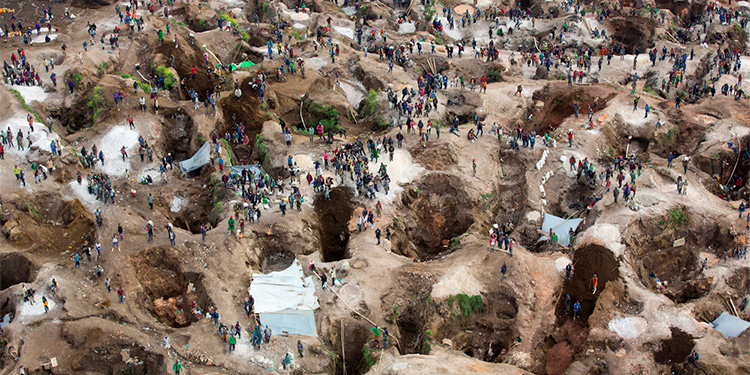
The Luwowo mine in North Kivu is one of the relatively few mines that guarantees conflict-free minerals. Photo by MONUSCO/Sylvain Liechti
And while the United States Geological Survey reports that 50 percent of tantalum mined in 2014 came from Rwanda, and another 17 percent came from the Democratic Republic of the Congo, Klinger says the numbers are questionable because much of the ore mined in the DRC is trucked to Rwanda, and the country of origin is obscured.
“We really don’t know how much coltan is in the Congo,” she says. “We don’t have reliable geological data.” Klinger says some companies have complied with the Dodd-Frank requirements, but many others claim that their suppliers can’t tell them where the ore comes from. “It’s a convenient pretext for noncompliant firms to wave their hands and say there is nothing they can do,” she says. “Rather than take meaningful action, it just generates another round of finger-pointing.”
A network of helpers in eastern Congo would send Machozi iPhone photos, Zugay says, and he would deliberately post those that were most disturbing. “Eventually, he created an army of witnesses,” she says. “He would also get reports from witnesses who would say the military was involved.”
An estimated two million people from 20 countries saw the pictures of the violence in North Kivu that Machozi posted on Beni Lubero, according to Zugay. “All of these people were bearing witness to what was happening,” she says. “And nothing was being done.”
For Machozi, the cruelest irony concerned coltan, the mineral that could have been the salvation of his people. “He said that coltan is such a valuable mineral because it is used in just about every cell phone, that it had the potential to eliminate poverty in the Congo,” says John Hart, an STH professor of Christian ethics and Machozi’s main thesis advisor. “Instead the money was going to a very few, and people were being killed because of what was under their land. He said the small farmers there were enslaved by the Congolese army and the Rwandan army and other warlords.”
Hart, whose PhD was on the influence of liberation theology in Latin America, likens Machozi to San Salvador Archbishop Oscar Romero, whose popular sermons, broadcast weekly, listed murders, tortures, and disappearances that he said had been legitimized by the Salvadoran government. Romero was shot to death in 1980 by four gunmen believed to be working under orders from the Salvadoran military.
The Academy vs the Calling
A few years after coming to Boston, Machozi began serving as a priest at Immaculate Conception parish in Everett, Mass., caring for a congregation that was largely Hispanic, Haitian, and Vietnamese. Machozi’s facility with French, one of the several languages he spoke, came in handy when celebrating mass for the Haitian community. Father Jerry Osterman, pastor of the parish, says Machozi was admired by all of his church’s ethnic communities, who saw him as a role model for immigrants to America.
After taking the job in Everett, Machozi began to spend less time on the social activities he had enjoyed for years with BU colleagues, and some of his friends think it was the work at Immaculate Conception that kept him away. Others say it was his disillusionment with the results of his efforts to mobilize people, and a swelling conviction that there was a better way to help his people. Julia Mongo, host of Africa Kabisa, a weekly African music show on MIT’s student-run radio station WMBR, had bonded with Machozi over their shared love of Congolese music.
“We had been very close, and then at about the end of 2010 I could see there was a change in him,” says Mongo. “He was such a sweet, kind, good-natured person, but there was a lot of sorrow and anger and frustration over what was going on back home. I always felt that at the same time we were all complicit in what he was fighting with our cell phones.”

Father Vincent Machozi (STH’15) hoped to encourage the people of North Kivu to report the mass murders, and the murderers. Courtesy of Beni Lubero
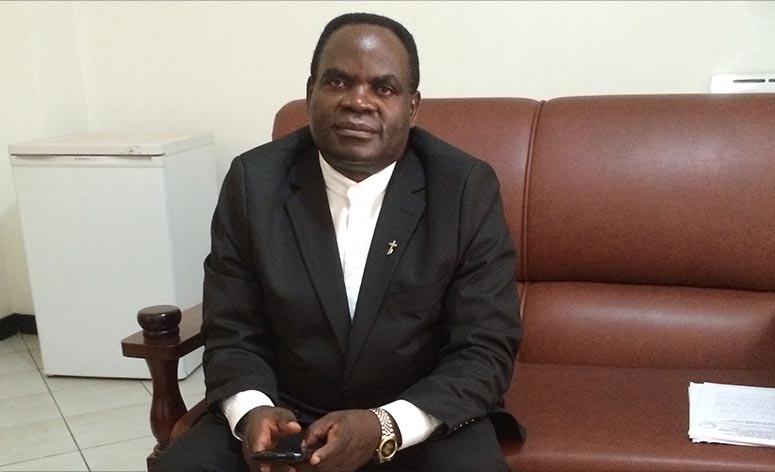
The priest, muckraker, and defender of his people. Courtesy of Beni Lubero
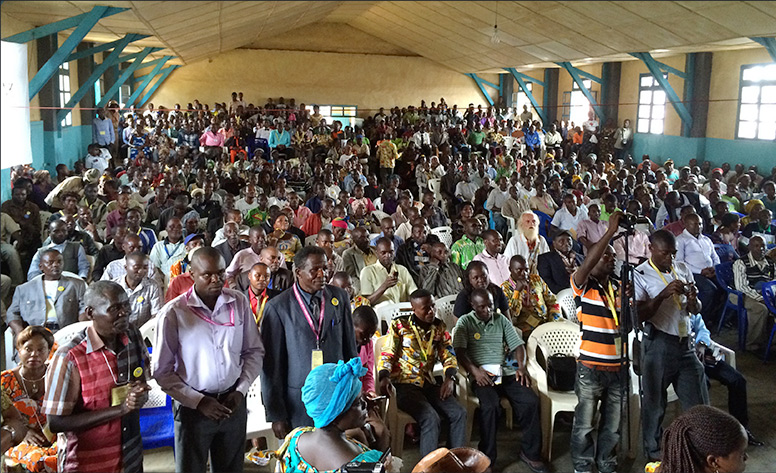
Machozi’s funeral in Butembo, where shops were closed for three days. Courtesy of Beni Lubero

The community center built by Machozi. Courtesy of Beni Lubero
Jennifer Yanco, US director of the African Studies Center’s West African Research Association, worries that Machozi “may have felt betrayed by the academic community. We weren’t really doing anything,” says Yanco, who was a Peace Corps volunteer in the Congo in the 1970s. “I think he felt our lack of engagement, although he would not have faulted anyone for that.”
Machozi hoped to persuade BU students to help him “do for coltan what had been done with diamonds and with South African gold,” Brown says. “Perhaps this goes with the territory, but I’ve always wondered if I had done enough.”
Beni Lubero, says Zugay, was not completely ineffective. The site did garner some small donations, as well as outrage and support from people in the Congolese diaspora. “But the effect wasn’t significant enough to keep Machozi here,” she says.
He came to BU because he was hoping to better understand things….After being inundated with pictures of people being murdered, he began to see that he needed to go there. He needed to be where the people were dying.
Ayda Zugay (CGS’07, CAS’10)
“He came to BU because he was hoping to better understand things,” she says. “He thought having a degree from a place like BU would help with his network of people and his mission, which he always saw as a global mission. After being inundated with pictures of people being murdered, he began to see that he needed to go there. He needed to be where the people were dying.”
In North Kivu, Machozi set to work doing the things he needed to do. He served as a priest in the city of Butembo, and he organized a community center in his home village of Vitungwe-Isale. In August 2013, 14 months after his return, Machozi reaped what must have been his greatest measure of hope: the general assembly of Kyaghanda Yira, the governing body of the Nande people, elected him to a three-year term as president of the Nande community, representing eight million people. Close friend Jacques Vithi, the general coordinator of Kyaghanda representing the Nande diaspora, says Machozi hoped to use his political power to bring the massacres in North Kivu to the attention of the International Court of Justice in the Hague. Vithi, who had helped out with Beni Lubero for 10 years, says the two men strived to mobilize the Nandes to report killings in the village. “Beni Lubero was our gun,” Vithi says.
No One Is Safe
Their efforts did little to stem the violence. In October 2012, four months after Machozi returned to the DRC, three Assumptionist priests disappeared from the newly opened parish of Notre Dame des Pauvres, high in the mountains of North Kivu near the Ugandan border. The prime suspect in the kidnappings was the militia ADF-NALU (Allied Democratic Forces–National Army for the Liberation of Uganda). The head of the East African Province of the Augustinians of the Assumption told the National Catholic Reporter last year that the ADF-NALU had in previous months kidnapped about 900 people, and had “chopped 300 people to bits.”
And while there was never any indication that the disappearance of the three priests was linked to Machozi, their seizure was a reminder that no one was safe. Machozi had never thought they were.
Pray for me, because I will be murdered. I feel it…but like Christ, for the sake of our people, I will not be silent.
Father Vincent Machozi (STH’15)
Father Emmanuel Kahindo, the Rome-based vicar general of the Assumptionist order and a fellow Congolese, recently told reporters that Machozi’s life had been threatened three times in two years. Kahindo said that in October of last year Machozi told him that his days were numbered. “Pray for me, because I will be murdered,” Machozi reportedly said. “I feel it…but like Christ, for the sake of our people, I will not be silent.”
And he wasn’t. On Beni Lubero, he continued to post photographs of victims and identify militias believed to be responsible for the slaughter. In 2015, with little progress made on his dissertation, Machozi decided to take an advanced master’s degree and focus on his community work. Five months after he asked the vicar for prayers, Machozi published an article claiming that DRC President Joseph Kabila was working with the Rwandan militias who regularly massacred civilians in North Kivu.

Thirty thousand people escorted Machozi’s body to the church in Butembo. Courtesy of Beni Lubero
Even for Beni Lubero, it was exceptionally bold.
The soldiers arrived at 11 p.m. on Sunday, March 20, 2016. All wearing the uniform of the Democratic Republic of the Congo, 10 men entered a social center where Machozi and Nande tribal chiefs were meeting to discuss peace efforts. They demanded to be taken to Mwami Abdu Kalemire III, leader of the Basho community, and to Machozi, who was working on his laptop in a courtyard. Kalemire fled, escaping unharmed. Witnesses say Machozi looked up at the approaching soldiers and had just enough time to ask, “Why are you killing me?”
Of course, almost everyone in the DRC knew exactly why. The only question was why it had taken them so long.
Elizabeth J. A. Siwo-Okundi (STH’05,’16), a friend and fellow graduate student, says Machozi did what he believed someone had to do. “He was a representative of so many people whose names will never make the headlines,” says Siwo-Okundi. “How can it be all these years and all of the trouble in Congo and yet the world ignores it?”
He was like Jesus. He was a peacemaker and a justice seeker in the Congo.
Shandirai Mawokomatanda (STH’06,’16)
Another friend, Shandirai Mawokomatanda (STH’06,’16), knew that Machozi had received several threats on his life. “What surprised me when he decided to go back was how matter-of-fact he was,” says Mawokomatanda. “He said, ‘I have to go back for my people. My people need me and I need them. If I don’t do this, no one else will.’ He felt that as a Christian and a priest, he had a higher calling—to share in the ministry of peacemaking. He was like Jesus. He was a peacemaker and a justice seeker in the Congo.”
At Machozi’s funeral in Butembo, 30,000 mourners escorted his body to the church, where priests in white and purple robes swung incense over the dark wood casket. For three days around the funeral, the shops and government offices were closed.
At Immaculate Conception Church in Everett, Africans, Haitians, Vietnamese, and Americans mourned the death of a beloved community leader. And at Marsh Chapel on Commonwealth Avenue, parts of a memorial service for him were conducted in English, French, and Swahili.
Father Malumba Matsongani, a fellow Assumptionist and a student of Machozi’s, told the mourners that Machozi’s killers were foolish to think that the priest was now dead. “The truth is,” says Matsongani, “you can’t kill an idea with a bullet.”
Four months after Machozi’s memorial service, Barbara Brown was thinking about how he would be remembered. “There was a man who did a doctorate at BU and worked for justice and was assassinated in 1968, and the whole world knew about it,” she says. “Here was a man, also a black man, who worked for justice in a place where over five million people have died and no one has paid attention. When he was assassinated, it wasn’t in the newspapers, and no one told the bigger story. How can we let his death, which is personal to us in Boston, go without attention? All of us in African studies know that the continent is ignored. That’s what galls me about his death, and it galls me about this country, and it shames me.”





















































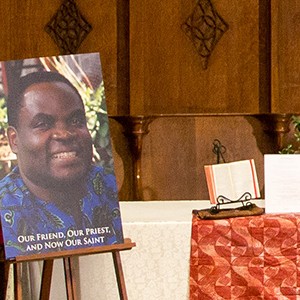
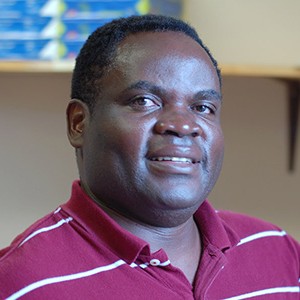
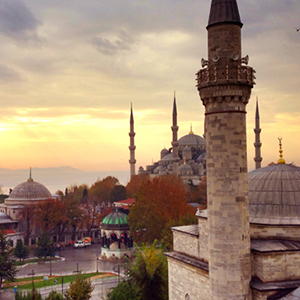
Un jour, nous serons jugés
paix a son ame
Thank you for the phone calls with regard to the Machozi scholarship. For those who prefer to donate by check please make payable to “Trustees of Boston University” and add “Machozi Fund” to the memo field. Checks can be mailed to Boston University, Gifts and Records, 595 Commonwealth Ave., Boston, MA 02215. Your generosity in his memory is greatly appreciated. Thank you again.
In these troubled and ambivalent times, injustice begins with our silence in front of arbitrary or criminal acts. We are afraid to speak against corporations, governments or people who play with us, our needs, our hunger and our life. For that reason, Father Vincent Machozi, with his courageous behavior, he made the difference and paid with his life. And we remain silent against acts against humanity? We will continue in our comfort zone, to avoid being disturbed? Will be that only when criminal hands come to our door, we will react?